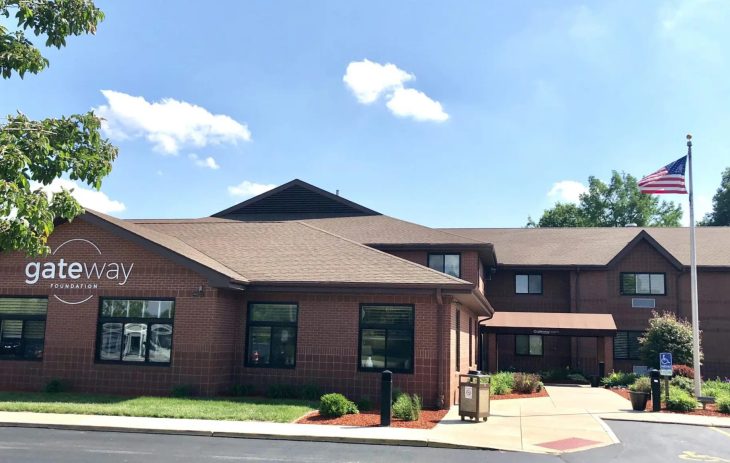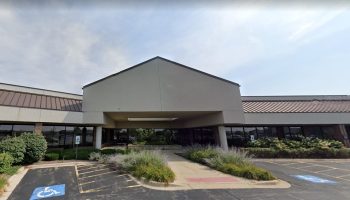About Gateway Foundation Springfield Drug Addiction Treatment Center
Gateway Foundation is a substance use and mental health disorder treatment center that offers a comprehensive range of services for adults. This includes inpatient detox and medication assisted treatment (MAT). The facility is located in a quiet corner of Springfield, Illinois, near Lake Victoria and Kiwanis Park. They have inpatient and outpatient programs for chemical dependency and dual diagnosis, or co-occurring, disorder treatment.
The facility accepts insurance from most providers, and they’re in network with many providers. They’ll also work with your insurance company if they’re out of network.
Detox is an important first step in any substance use disorder treatment program. It’s important to rid your body of toxins to break the physical dependency on alcohol and drugs. Their detox program has 24/7 physician directed nursing care. Withdrawal symptoms such as nausea, gastrointestinal distress, and shaking can be uncomfortable. If you’re experiencing a lot of discomfort, the staff will give you medication to ease the symptoms.
MAT is a helpful treatment for opioid withdrawal since it can stop your brain from realizing you’re in withdrawal. Medications like Suboxone or methadone are commonly used for MAT. If necessary, you can stay on MAT for the long term or it can be used to taper off of opioids.
While you’re in detox, you’ll participate in numerous therapies to help with the psychological aspects of withdrawal and sobriety. Many people with substance use disorder have co-occurring mental health challenges such as bipolar disorder or depression. Therapy helps you identify co occurring disorders so you can address those in therapy or with medication management.
Some of the therapies offered include motivational interviewing (MI), cognitive behavioral therapy (CBT), and acceptance and commitment therapy. These therapies help you accept your substance use and behavioral health challenges and commit to change and recovery.
CBT is especially helpful with turning your negative thoughts into more positive thought patterns. You’ll also work on mindfulness to help you recognize and separate your emotional response to physical pain. Mindfulness helps by reducing the severity of your withdrawal symptoms. Once you’re through withdrawal, your treatment team will help you with an aftercare plan. This may include continuing in the inpatient program or moving to an outpatient program.
Levels of Care
-
Inpatient
Inpatient and residential programs provide round-the-clock medical and emotional support as you live at the treatment facility. This level of care may be recommended if you have severe addictions or mental health conditions since it removes outside distractions and allows you to focus solely on therapy.
-
Outpatient
In outpatient therapy, you’ll attend therapy sessions several times each week while living at home. This is ideal if you have a strong support system and a lower risk of relapse. Outpatient treatment offers flexibility to maintain work, school or family obligations.
-
Aftercare
Aftercare programs provide ongoing support after you complete a rehab program. They may include several components to help you maintain sobriety including therapy, community support groups and relapse prevention strategies. This gives you a network of resources as you reintegrate into your daily life.
-
Dual Diagnosis
Dual diagnosis programs address substance use disorders and co-occurring mental health conditions simultaneously. This integrated approach to care improves the likelihood of long term recovery and stability by addressing the root causes of addiction.
Detox Service Setting
-
Inpatient Detox
Inpatient detox occurs in a dedicated treatment facility. You’ll live there around the clock and receive intensive medical support and supervision to help manage your withdrawal symptoms. It is suitable for individuals with moderate to severe addictions as it ensures a stable detox environment.
-
Outpatient Detox
Outpatient detox gives you access to medically supervised withdrawal services while still allowing you to live at home. You’ll attend a clinic for treatment and monitoring. This flexible option is suitable for those with mild to moderate withdrawal symptoms who have strong support systems.
Programs
-
Adult (18+)
Adult programs address the substance use and life challenges specific to adults. Therapists can deliver sessions in individual, group and family settings. Services often include job support and life skills training in a structured environment.
-
Alcohol Detox
Alcohol detox programs offer medical support to help individuals withdraw safely from alcohol. Your care team may use medications to ease your symptoms and provide medical monitoring to address complications.
-
Cognitive Behavioral Therapy
Cognitive behavioral therapy focuses on changing harmful thought patterns and behaviors associated with addiction. You’ll learn healthier coping mechanisms by identifying and replacing negative thoughts. This improves your emotional resilience and decreases your relapse potential.
-
Men
Men's programs address substance use while also considering the social pressures, family roles and mental health concerns that are specific to men. You’ll learn healthy coping mechanisms as you build emotional resilience and develop communication skills.
-
Opioid Detox
Opioid detox uses medications to ease severe withdrawal symptoms. It also includes medical supervision to help you manage potential complications. These services allow you to stabilize and begin a recovery plan.
-
Rational Behavior Therapy
Rational behavior therapy helps you identify irrational beliefs that contribute to an addiction. Challenging and modifying those beliefs helps you develop healthier attitudes and behaviors. This therapy supports long term sobriety and sustainable recovery.
-
Women
Women's programs offer a safe and supportive space to focus on gender specific issues such as trauma, family roles and mental health conditions. Therapists tailor the sessions to address women's needs and foster empowerment in a healing and nurturing environment.
-
Young Adult (18 - 25)
Young adult programs are designed for individuals who are transitioning into adulthood. Topics of discussion typically include identity, independence and peer relationships. Providers may also offer life skills training and career support.
Payment Options
- Payment Assistance
- Medicaid
- Private Insurance
- Self Pay
Accreditations
-
 SAMHSA
SAMHSA
-
 Joint Commission
Joint Commission
Amenities
- Lakeside
Contact
2200 Lake Victoria Drive
Springfield, IL 62703





